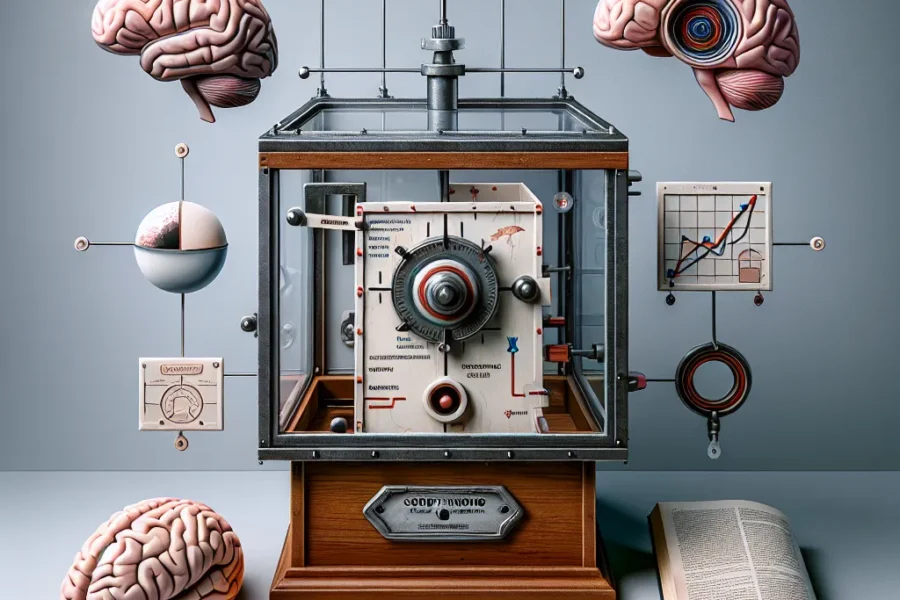Karen Horney’s Legacy in Understanding Personality
Karen Horney was a trailblazing figure in psychology, whose profound insights into personality theory and psychoanalysis helped shape the way we understand human behavior today. A critic of Freudian orthodoxy and an advocate for sociocultural factors in personality development, Horney advanced a holistic approach to psychology that emphasized personal growth over deterministic models. This article explores the lasting legacy of Karen Horney’s work in understanding personality.
Karen Horney was born on September 16, 1885, in Hamburg, Germany. Trained in psychoanalysis at the Berlin Psychoanalytic Institute, Horney grew critical of Sigmund Freud’s emphasis on biological determinants in personality. Instead, she posited that environmental and cultural influences played a more significant role in shaping individual personality. Horney’s work was particularly pioneering as it brought attention to the psychological differences between genders and introduced the concept of “womb envy,” countering Freud’s theory of “penis envy.”
One of Horney’s significant contributions to personality theory was her critique of the Freudian Oedipus complex. She suggested that the anxieties and conflicts arising during childhood were not due to sexual tensions but rather due to a child’s perception of an indifferent or hostile environment. She emphasized the importance of parent-child relationships, believing that a child’s sense of security was paramount in determining future mental health.
Horney’s model of neurosis stands as a cornerstone of her contributions. She identified ten patterns of neurotic needs that individuals develop based on the parenting style and environment they are exposed to. These needs become compulsive and disproportionate, leading to neurotic personalities. The ten needs are: affection and approval, dominant partner, power, exploitation, prestige, admiration, achievement or ambition, self-sufficiency, perfection, and restriction of life. Her categorization remains influential in various forms of personality assessment and therapy.
Another of Horney’s key theories is her concept of the “real self” and the “idealized self.” According to Horney, the real self is the true core of an individual’s identity, consisting of the potential for growth and fulfillment. In contrast, the idealized self is an unattainable standard of perfection that an individual feels they must meet to overcome feelings of inadequacy. This dichotomy is central to her theory of self-realization, in which she suggests that a crucial part of overcoming neuroses is bridging the gap between these two selves.
Karen Horney proposed three coping strategies for dealing with anxiety, which she termed the three neurotic trends: moving toward people (compliance), moving against people (aggression), and moving away from people (detachment). These strategies are adopted by individuals to cope with the anxiety produced by feelings of isolation and helplessness. Horney’s analysis of these strategies offers valuable perspectives on the range of behaviors exhibited by individuals as they navigate personal and professional relationships.
Horney’s feminist perspective was also revolutionary. At a time when psychology was dominated by male perspectives that often pathologized women’s experiences, Horney argued for the importance of examining the societal and cultural pressures that influenced women’s mental health. Rather than viewing women’s psychology as a deviation from a male norm, Horney highlighted the need for a nuanced understanding of the particular challenges and societal expectations faced by women.
Karen Horney founded the American Institute for Psychoanalysis and served as its dean until her death in 1952. The institute continues her work by training psychoanalysts and providing mental health services, ensuring that Horney’s legacy lives on in the practice of psychoanalytic therapy. Her dedication to understanding the human condition deeply influenced the humanistic psychology movement, which shares her view of individuals as fundamentally capable of self-regulation, self-healing, and positive growth.
Horney’s ideas have been especially impactful in the fields of feminist psychology and therapy. By challenging the misogynistic tendencies in Freudian thought and advocating for gender equality, Horney has inspired generations of therapists to consider gender dynamics and power structures when working with their clients. This approach has led to more empathetic and effective therapy for individuals of all genders.
Modern personality psychology owes much to Horney’s pioneering work. Her holistic approach to understanding the human psyche has paved the way for more contemporary theories that consider the complexities of human behavior. Personality assessments such as the Big Five inventory and various therapeutic techniques employ principles that can be traced back to Horney’s emphasis on the interaction between the individual and their environment.
Furthermore, her ideas about the real self and the search for self-realization are echoed in the work of Carl Rogers, Abraham Maslow, and other humanistic psychologists who assert the importance of personal growth and self-actualization. Horney’s concepts remain relevant today, informing current research and practice in personality psychology and psychotherapy.
Karen Horney’s legacy is embedded in the diverse ways we now approach the study of personality. From providing a greater understanding of the impact of parenting styles to proposing a dynamic, cultural, and social view of personality formation, her work continues to inform and illuminate. Her theories challenge us to think more deeply about the neurotic patterns that can sabotage our relationships and personal growth and open pathways to a more integrated and authentic self.
In the digital age, the relevance of Karen Horney’s theories can be seen in the growing awareness and dialog around mental health, personality disorders, and the importance of societal factors on individual psychology. As we continue to expand our collective knowledge, Horney’s teachings serve as a reminder of the inherent complexity of the human spirit and the enduring pursuit of a meaningful, self-determined life.
As we reflect on Karen Horney’s legacy in understanding personality, it becomes evident that her contributions laid a foundation that still supports modern psychological theory and practice. She was a beacon of progressive thought in the field of psychology, and her holistic, growth-oriented perspective offered a counterpoint to the determinism of her peers. Horney’s core belief in the potential for human healing and growth rings as true today as it did during her time, ensuring her work continues to inspire and guide future generations of scholars, therapists, and those on a quest for self-understanding.
In conclusion, Karen Horney’s legacy in personality theory is a testament to her enduring influence upon psychology. Her innovative ideas challenged the status quo and broadened our understanding of the complex interplay between an individual’s inner world and their social environment. Her contributions have laid the groundwork for more compassionate, person-centered psychological practices that continue to benefit individuals seeking to navigate the intricacies of their personalities and achieve a more fulfilling life.



Leave a Comment